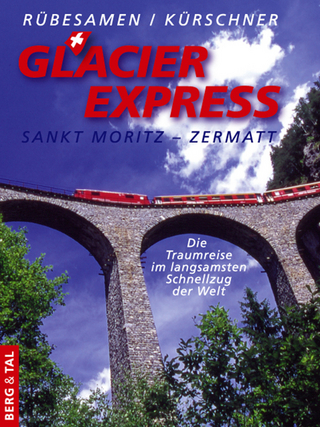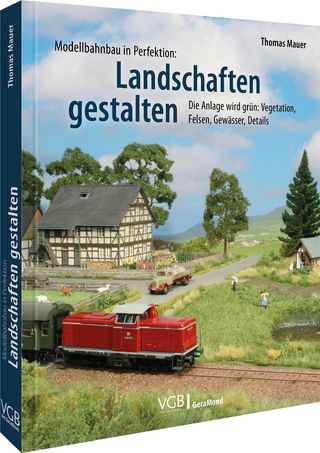
Back on Track
American Railroad Accidents and Safety, 1965–2015
Seiten
2018
Johns Hopkins University Press (Verlag)
978-1-4214-2415-6 (ISBN)
Johns Hopkins University Press (Verlag)
978-1-4214-2415-6 (ISBN)
- Titel z.Zt. nicht lieferbar
- Versandkostenfrei innerhalb Deutschlands
- Auch auf Rechnung
- Verfügbarkeit in der Filiale vor Ort prüfen
- Artikel merken
A fascinating account of one of America’s most important industries and its dangers.
Throughout the early twentieth century, railroad safety steadily improved across the United States. But by the 1960s, American railroads had fallen apart, the result of a regulatory straightjacket that eroded profitability and undermined safety. Collisions, derailments, worker fatalities, and grade crossing mishaps skyrocketed, while hazmat disasters exploded into newspaper headlines.
In Back on Track, his sequel to Death Rode the Rails, Mark Aldrich traces the history of railroad accidents beginning in 1965, when Congress responded to bankrupt and scandal-ridden carriers by enacting a new safety regime. Aldrich details the federalization of rail safety and the implementation of a massive grade crossing program. He touches on post-1976 economic deregulation, which provided critical financing that underwrote better public safety. He also explores how the National Transportation Safety Board acted as a public scold to shine bright lights on private failings, while Federal Railroad Administration regulations reinforced market incentives for better safety.
Ultimately, Aldrich concludes, the past 50 years have seen great strides in restoring railroad safety while enhancing industry profitability. Arguing that it was not inadequate safety regulation but rather stifling economic regulation that initially caused an uptick in train accidents, Back on Track is both a paen to the return of more competitive railroading and the only comprehensive history of the safety of modern American railroads.
Praise for Death Rode the Rails
"A masterful study of the complex evolution of railroad safety."—American Historical Review
"Students of rail safety, and today's Class I railroad managers, need to read this volume."—Trains
"Aldrich has created a masterpiece. His research is extensive, drawing on a rich variety of obscure yet relevant sources."—Register of the Kentucky Historical Society
"One of the first large-scale scholarly studies of railroad safety in America."—Railroad History
"A thought-provoking and well-grounded contribution to the history of American economic development."—Journal of American History
"Pioneering . . . A central message of Aldrich's book is that 'little accidents' played a crucial though until now largely hidden role in the gradual evolution of a risk society."—Technology and Culture
"A work of merit . . . essential reading for historians of transport safety, business, and technology."—Journal of Transport History
"Impressive and thoroughly researched . . . Demonstrates how railroad safety evolved from the intersection of market pressures, technology, and public sentiment."—Journal of Southern History
Throughout the early twentieth century, railroad safety steadily improved across the United States. But by the 1960s, American railroads had fallen apart, the result of a regulatory straightjacket that eroded profitability and undermined safety. Collisions, derailments, worker fatalities, and grade crossing mishaps skyrocketed, while hazmat disasters exploded into newspaper headlines.
In Back on Track, his sequel to Death Rode the Rails, Mark Aldrich traces the history of railroad accidents beginning in 1965, when Congress responded to bankrupt and scandal-ridden carriers by enacting a new safety regime. Aldrich details the federalization of rail safety and the implementation of a massive grade crossing program. He touches on post-1976 economic deregulation, which provided critical financing that underwrote better public safety. He also explores how the National Transportation Safety Board acted as a public scold to shine bright lights on private failings, while Federal Railroad Administration regulations reinforced market incentives for better safety.
Ultimately, Aldrich concludes, the past 50 years have seen great strides in restoring railroad safety while enhancing industry profitability. Arguing that it was not inadequate safety regulation but rather stifling economic regulation that initially caused an uptick in train accidents, Back on Track is both a paen to the return of more competitive railroading and the only comprehensive history of the safety of modern American railroads.
Praise for Death Rode the Rails
"A masterful study of the complex evolution of railroad safety."—American Historical Review
"Students of rail safety, and today's Class I railroad managers, need to read this volume."—Trains
"Aldrich has created a masterpiece. His research is extensive, drawing on a rich variety of obscure yet relevant sources."—Register of the Kentucky Historical Society
"One of the first large-scale scholarly studies of railroad safety in America."—Railroad History
"A thought-provoking and well-grounded contribution to the history of American economic development."—Journal of American History
"Pioneering . . . A central message of Aldrich's book is that 'little accidents' played a crucial though until now largely hidden role in the gradual evolution of a risk society."—Technology and Culture
"A work of merit . . . essential reading for historians of transport safety, business, and technology."—Journal of Transport History
"Impressive and thoroughly researched . . . Demonstrates how railroad safety evolved from the intersection of market pressures, technology, and public sentiment."—Journal of Southern History
Mark Aldrich is the Marilyn Carlson Nelson Professor of Economics emeritus at Smith College. He is the author of Safety First: Technology, Labor, and Business in the Building of American Work Safety, 1870–1939 and Death Rode the Rails: American Railroad Accidents and Safety, 1828–1965.
List of Figures
List of Tables
Preface
Introduction
1. The Long View
2. Off the Tracks
3. On the Right Track
4. "Our Goal Is Zero Accidents"
5. Passenger Safety in Modern Times, 1955–2015
6. Look Out for the Train
Conclusion
Appendixes
1. Train Accidents That Shaped Railroad Safety, 1831–1955
2. Adjusting Train Accidents for Inflation and Reporting Changes, 1947–1978
3. Accidents That Shaped Railroad Safety, 1960–2010
List of Abbreviations
Notes
Essay on Sources
Index
| Erscheinungsdatum | 16.02.2018 |
|---|---|
| Reihe/Serie | Hagley Library Studies in Business, Technology, and Politics |
| Zusatzinfo | 26 Illustrations, black and white; 17 Line drawings, black and white |
| Verlagsort | Baltimore, MD |
| Sprache | englisch |
| Maße | 178 x 254 mm |
| Gewicht | 703 g |
| Themenwelt | Natur / Technik ► Fahrzeuge / Flugzeuge / Schiffe ► Schienenfahrzeuge |
| Geschichte ► Teilgebiete der Geschichte ► Technikgeschichte | |
| ISBN-10 | 1-4214-2415-0 / 1421424150 |
| ISBN-13 | 978-1-4214-2415-6 / 9781421424156 |
| Zustand | Neuware |
| Haben Sie eine Frage zum Produkt? |
Mehr entdecken
aus dem Bereich
aus dem Bereich
St. Moritz – Zermatt : die Traumreise im langsamsten Schnellzug der …
Buch | Hardcover (2023)
Verlag Berg & Tal
14,95 €
Betriebsmaschinendienst, Einsatz bei den Bahnbetriebswerken und …
Buch | Hardcover (2024)
EK-Verlag
54,00 €
Buch | Hardcover (2023)
GeraMond (Verlag)
27,99 €


